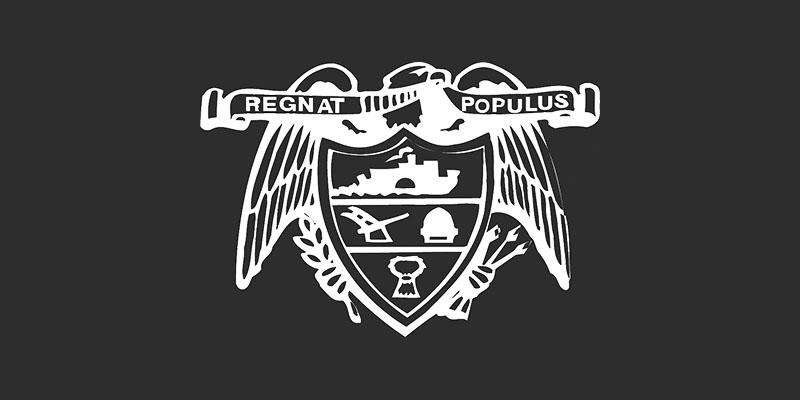New federal probe at Miami Seaquarium delays lease change; 3 more animal deaths reported | National

MIAMI — The U.S. Department of Agriculture is investigating the Miami Seaquarium after citing the aging facility for a number of serious animal welfare violations including feeding spoiled fish to Lolita, the park’s main attraction, and not keeping track of where animals were placed in different pools, which led to violent fights that contributed to the death of at least two dolphins last year.
The new investigation, which was confirmed by Miami-Dade County and could take weeks, comes after a routine inspection in June detailed serious violations in a 17-page report listing “events of particular concern” and “critical” infrastructure and health issues. Among them: cutbacks on the amount of food for the attraction’s performing marine mammals and poor water flow, which led to a sharp increase in bacteria and algae in several tanks and pools.
And animals continue to die at the troubled park after a string of deaths last year triggered concern from federal agencies: Catalina, a Pacific white-sided dolphin that lived in the same tank and performed shows with Lolita, died earlier this month from what staff believes may have been trauma after aggression by the 56-year-old orca. Coral, a harbor seal, died after “chronic infection.” And a manatee that was in rehabilitation died of emaciation, or being too weak and thin.
The federal probe is delaying the transfer of the lease to The Dolphin Company, a move that Mayor Daniella Levine Cava and county leaders believe is a solution for the troubled marine park and a chance for significant improvements in animal care and oversight. The Seaquarium has been the target of frequent campaigns by animal-rights activists who accuse it of animal cruelty for keeping Lolita in the smallest orca tank in the U.S., among other issues.
County commissioners approved in October the transfer of the Seaquarium’s lease to Cancun-based The Dolphin Company under an agreement to ensure investment in infrastructure and better care for marine animals at the park that has operated on county-owned land on Virginia Key since its opening in 1954. Miami-Dade receives about $2.5 million a year in rent from the park.
Commissioners voted to allow Festival Fun Parks, a subsidiary of Madrid-based Parques Reunidos, also known as Palace Entertainment, to sell the lease it has held since 2014 to the Mexican operator. But the deal can only be finalized after the Seaquarium addresses the critical violations that emerged from the USDA’s inspection in June and any enforcement actions that may emerge from the current investigation, Miami-Dade Parks, Recreation and Open Spaces Department said.
“The transaction can’t take place until all the USDA citations have been addressed. That’s a condition required by the Mayor and the Board for approval and execution of the lease transaction,” the county said. “The Dolphin Company understands and concurs with this requirement, and accordingly won’t take over operations at the Seaquarium until the improvements are completed by the current operator.”
About the June 8, 2021, USDA inspection report, the county said: “The current operator has reviewed and addressed those citations, and the required improvements are almost complete.”
In an inspection report published in September, the USDA said the park’s current management, under the leadership of general manager Bill Lentz and curator Chris Plante, ignored advice from its own attending veterinarian, which led to “events of particular concern.” Highlights included having Lolita the killer whale, for five decades the park’s main attraction, perform head-in jumps with an injured jaw, against the veterinarian’s advice.
Park management also cut Lolita’s food ration and reduced portions given other animals by half. In a citation considered critical, USDA said Plante admitted to feeding Lolita and other performing mammals rotting fish, which led to intestinal issues that had to be treated with antibiotics. The lack of food volume likely caused Lolita “distress and agitation,” the report said.
There were also serious water quality issues that sickened animals. In a lengthy section about water issues and effects on animal health, the report said poor water flow led to a sharp increase in bacteria and algae in several tanks and pools. The Seaquarium pumps water from Biscayne Bay but is supposed to treat it to prevent bacteria.
Miami-Dade said improvements have been made at the Seaquarium, including fixes to water quality by installing chlorine testing procedures and the food for the animals. But the item “Handling of animals” in Lolita’s pool is among some problems cited by the USDA that haven’t been fixed, according to a list provided by the county.
Contradicting the county, the Seaquarium said in an e-mailed statement: “All projects have been addressed as required by the USDA. We continue to work closely with the USDA and other experts to constantly improve.” Current operator Palace Entertainment didn’t reply to requests for comment.
The USDA said it cannot comment on the investigation as a matter of policy. People familiar with the situation said an investigator spent several days at the facility earlier this month interviewing employees.
In general, when the USDA’s Animal and Plant Health Inspection Service personnel discover serious violations during routine inspections, they may request a formal investigation by USDA’s Investigation and Enforcement Services to potentially prepare a case against the facility.
“The investigation is a fact-finding mission, which may include collecting documents, taking photographs, and interviewing witnesses including the alleged violator,” according to the agency. Once the probe is complete, USDA issues a report with its findings, which then goes to the enforcement division for review and potential penalty recommendations. Enforcement actions may include warnings, a voluntary settlement agreement or a referral to the U.S. Department of Justice for civil or criminal action.
The Dolphin Company said it’s not in charge of the park yet and any questions should be addressed to the current operator Palace Entertainment, which is owned by Madrid-based Parques Reunidos. The Dolphin Company didn’t reply to questions whether the new federal investigation could be a deal-breaker.
The USDA investigation coincided with the death of Catalina, a 31-year-old Pacific white-sided dolphin that had been living with Lolita the killer whale in the same tank at Miami Seaquarium since 2018.
Seaquarium staff suspect the death was caused by trauma, possibly by Lolita ramming the dolphin in an episode of aggressive behavior that had been witnessed before, according to people familiar with the case.
Catalina belonged to SeaWorld of Florida and had been on loan to the Seaquarium since 2018, according to the National Oceanic and Atmospheric Administration, or NOAA, which manages the National Inventory of Marine Mammals, a database of animals that are kept in captivity in the U.S.
NOAA said it received notice that Catalina was transported from Seaquarium to SeaWorld on Dec. 3. It hasn’t received any notice of its death, according to a spokeswoman.
SeaWorld confirmed the dolphin died at its facility in Orlando. The marine park said a necropsy was performed but a cause of death hasn’t been determined.
“We are saddened by the loss of Catalina, a 31-year-old Pacific White Sided Dolphin, who passed away this past week.” Seaworld said in an emailed statement on Dec. 9. “Catalina was recently moved to one of our critical care facilities from Miami Seaquarium where she had resided since 2018. Our team of experienced veterinarians and animal care specialists never left her side, providing around-the-clock comfort and specialized care. Our thoughts are with all of those who knew her, and those she inspired to learn more about animals and their habitats.”
The USDA inspection report documented instances of aggression between Lolita, Catalina and another white-sided dolphin called Lii.
”Chasing, white water and aggression between Lii and Catalina, two Pacific white sided dolphins, and Toki had been observed and was of concern,” the report said.
People for the Ethical Treatment of Animals, which earlier this year obtained public records showing that five dolphins and a baby sea lion died at the Seaquarium between March 2019 and April 2020, is advocating for the closure of the marine park.
“How many more animals need to die before the Miami Seaquarium calls it quits? This ‘abusement’ park keeps shamelessly shoving incompatible animals into the orca Lolita’s abysmally small tank, which has now apparently led to Catalina the dolphin’s death,” PETA Foundation’s vice president and deputy general counsel for Animal Law Jared Goodman said in an e-mailed statement. “PETA welcomes the USDA’s investigation but warns that animals at the Miami Seaquarium will continue to suffer and die until the owners of this callous, exploitative operation finally release them to seaside sanctuaries.”
After firing its longtime attending veterinarian Magdalena Rodriguez in the summer, the Seaquarium hired Shelby Loos, who’s been posting videos on the facility’s Facebook page in an effort to share information about the animals. Loos is also a part-time lecturer for the graduate course “Conservation and Management of Marine Mammals” at the University of Miami’s Rosenstiel School of Marine and Atmospheric Science, according to her LinkedIn profile.
In an October op-ed published in The Miami Herald, she said the Seaquarium was working to improve how it operates and how it takes care of its animals.
“When I took the role of attending veterinarian at Miami Seaquarium this year, I identified several areas where we could enhance the level of care the animals receive, including cross-department communication and preventive care. With support from expert veterinarian consultant, Dr. Tom Reidarson, we are acting to improve the lives of Miami Seaquarium’s animals every single day,” she wrote. “While our clinical skills as veterinarians are important, our ability to communicate clearly and openly is equally crucial.”
———
©2021 Miami Herald. Visit at miamiherald.com. Distributed by Tribune Content Agency, LLC.


